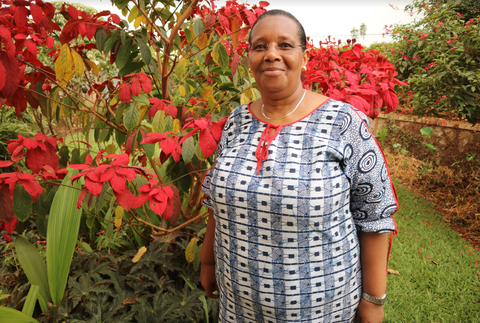KIGALI, Rwanda – Marie shuffled seven chairs to fit around the table in her courtyard, placed down a tray of tea, and poured water into glasses. When her friends arrived, she hugged each of them.
“If they won’t let us in,” Marie paused, “We’ll have to find another way.”
“They” were the Burundi government, and the women were members of a 300-strong, women-only advocacy group, ‘Women and Girls Movement for Peace and Security in Burundi.’
Led by Marie Louise Baricako, a 64-year-old Burundian activist, the group hopes to help stop the bloodshed in Burundi, a country teetering on the edge of genocide. President Pierre Nkurunziza has led a campaign of intimidation and violence on citizens who oppose his contested presidency, driving masses of citizens into exile. Marie’s group aims to find a way for women to be both seen and heard by the Burundi government, the African Union, and the United Nations Security Council, and to call for women’s inclusion in the political negotiations and peace talks.
“You cannot have peace if you don’t listen to women,” Marie said. That afternoon, the group discussed ways to be involved in the country’s ‘peace talk’ held in Tanzania in mid-February, a talk in which 31 men were invited, but only two women. “Women must be involved in these conversations the leaders are having. We cannot influence something from the outside.”
Nearly 400,000 Burundians have fled the country since 2015. The U.N. says torture and sexual violence against women is on the rise; one report described women as “running from rape,” committed by “Imbonerakure,” the government youth league. Women have also been brutally beaten and gang-raped by men armed with guns, sticks, or knives, according to Human Rights Watch.
The peace talks are essential to creating stability and calm in the country.
But women’s involvement in the talks appear to be a threat to the Burundi government and their international allies. Earlier this month, a member of the movement was barred from giving a briefing to the U.N. Security Council about the atrocities committed in Burundi after Russia objected to her participation.
“No one dares tell him the truth,” Marie said, referring to the Burundian president. “He tells the rest of the world everything is fine and under control – and it’s a lie.”
Marie’s position as a leader for the group fell into her lap. After several years in political advocacy across multiple countries in Africa and following a stint with the United Nations, she returned home to Burundi at the beginning of the crisis in 2015. Marie says that when President Nkurunziza announced his third term, it not only sparked the country’s turmoil, but also marked a women’s uprising.
“I came back home and found the movement had already begun,” she said, gesturing to the women sitting around the table. “Women were saying about me, ‘our coach is back! Take your position.’ There was no discussion: they were waiting for me, and I got to work.”
Read article here.


 Rossalyn Warren
Rossalyn Warren
